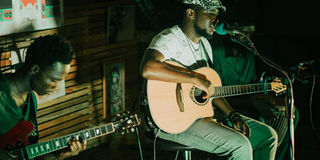Use curriculum to fight corruption

What you need to know:
Whereas there are many good initiatives and resources towards fighting corruption such as the anti-corruption walk, rewarding public servants who work with integrity, mass announcements/adverts against corruption, let us also look at and explore other non-conventional, but effective means of fighting this vice
Statistics show that Uganda loses about Shs3.7 trillion annually to corruption in form of embezzlement, theft and misappropriation of government resources. Corruption is the dishonest or fraudulent conduct by citizens and those in power, typically involving bribery.
Whereas there are many good initiatives and resources towards fighting corruption such as the anti-corruption walk, rewarding public servants who work with integrity, mass announcements/adverts against corruption, let us also look at and explore other non-conventional, but effective means of fighting this vice. For instance, incorporate into the curriculum anti-corruption content which is taught and examinable.
A curriculum is a guide, framework or content that is taught to students in school, which are seeds sowed into the mind as Jesus illustrates in the Parable of the Sower in Luke 8:4-15. These seeds later bear fruits in form of beliefs, choices, attitudes, values and behaviours of the learners.
Many developed countries have used education to foster development to propagate good values in their citizens. For instance, the ACE (Accelerated Christian Education) work books, which are used in Christian schools. This curriculum is Christian, but has American content. When I perused through it, I admired the way the framers of this curriculum promote the American constitution and pride about their history. They inspire the learner to love, take pride and pay allegiance to America. In the same way, we can also include content that promotes integrity, patriotism, and dignity of work, especially now that we are amending the curriculum.
Former South African president Nelson Mandela was, therefore, right when he said: “Education is the most powerful weapon which you can use to change the world.” Education is the key to eliminating gender inequality, to reducing poverty, to creating a sustainable planet, to preventing needless deaths and illness, and to fostering peace - regulation and innovation.
The other effective way to fight corruption is through music. Damson a student of Plato, the great philosopher once said: “Let me write the songs of a nation, I care not who makes its laws.” Damson strongly believed that if a man were permitted to make a poem or song narrating a story, promoting or campaigning for or against something, he could influence the behaviour of people more than the law enforcers. Ancient legislators believed they could not reform the manners of any city without the help of a lyric, and sometimes of a dramatic poet. That is how powerful and influential music is.
In his paper Sounds of Resistance, “The role of Music in South Africa’s anti-Apartheid Movement,” Sifiso Ntuli illustrates that “A song is something that we communicate to those people who otherwise would not understand where we are coming from. You could give them a long political speech – they would still not understand. But I tell you, when you finish that song, people will be like….. ‘Damn, I know where you are coming from”
Music has been scientifically proven to have a powerful effect on the brain. Neuro scientists discovered that when people listen to music, their emotions fluctuate, and the effect is to change their behaviour. Let’s rally musicians and poets to sing against the vice of corruption and encourage integrity, and patriotism especially in this day where musicians have become politically relevant.
Grace Nyamahunge,
[email protected]


